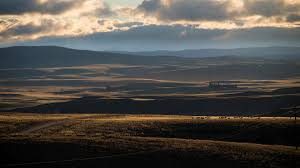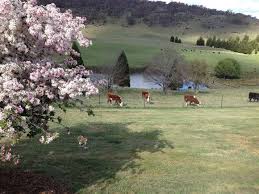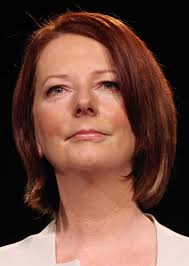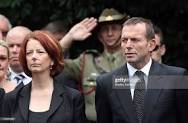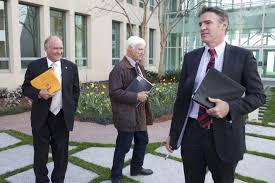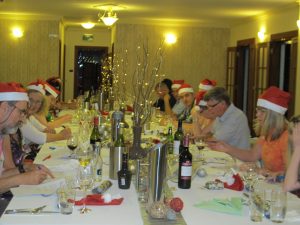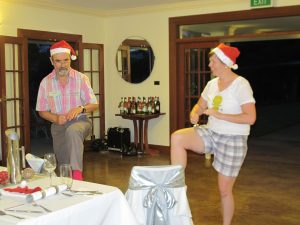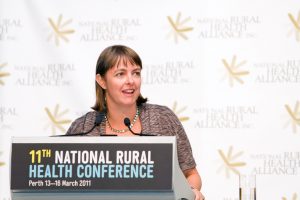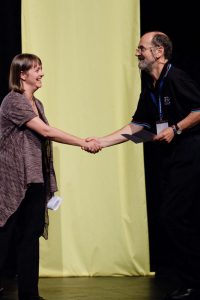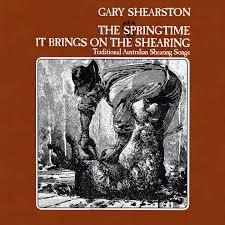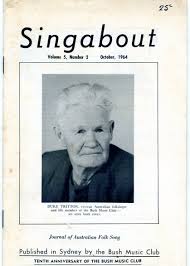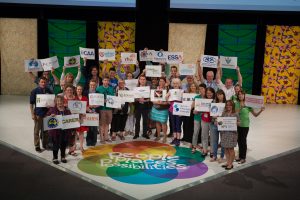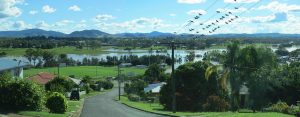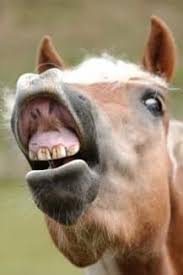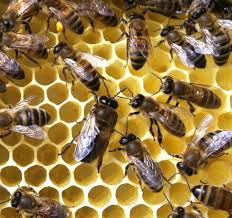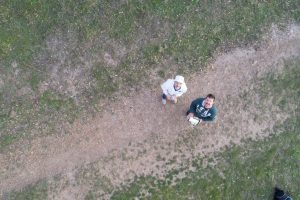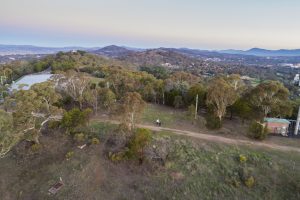This is the third part of the collection of pieces that were in the back pockets of my trousers at June 2016. Part One includes an introduction and explanation. As in the first two parts, some contextual background has been added in this third part to help explain the purpose for which each piece was written or selected.
Index Part One Introduction LiT 1 A country childhood LiT 2 11th Conference recommendations LiT 3 Duke Tritton, Gary Shearston LiT 4 A doggerel of a life LiT 5 Do not go gentle, Dylan Thomas LiT 6 Each guest at our table Part Two LiT 7 For Tony Wade LiT 8 Funeral blues, W. H. Auden LiT 9 Heart of our Universe LiT 10 The Mad Monk and The Ranga LiT 11 Christmas Party 2012 LiT 12 from Macbeth, William Shakespeare Part Three - this post LiT 13 None of us is innocent LiT 14 from Richard II, William Shakespeare LiT 15 Two little boys LiT 16 "Some chicken; some neck", Winston Churchill LiT 17 We've had enough of fluoro vests LiT 18 What's in a name?

Lines in the Trouser 13
None of us is innocent
Context: I prepared this for the staff Christmas party of 2014 but for some reason I didn’t use it. Let me provide background on some of the party guests. One Vision is the wonderful AV company that the NRHA has consistently worked with at its meetings and conferences. Head of One Vision is Frank Meany. Lesley had just had her second child, Georgia, and Millie was just a couple of weeks away from having her third, a boy, and had been temporarily replaced by Alejandra Cares Henriquez. Audrey was away expecting her first child. (The number of staff who were pregnant meant that their other female colleagues began to regard the water in the cooler with some suspicion.) Helen’s husband, Gary, plays the trumpet. Janine used to chair our staff meetings. We were expecting to meet Sue’s husband, Mark, for the first time but as it happened neither of them came because of a fire emergency near their home. So we never did see Mark dancing on the table.
None of us is innocent
None of us is innocent of being slightly strange
And neither are we as we were – for all of us have changed.
But I’m determined, hook or crook, to be a shining light
If it’s my time and I’ve no rhyme it wouldn’t feel quite right.
There’s some of us think just the same, see life with but One Vision,
Forgot to put them on the list but made a late decision.
Frank’s not here but in his place we’re pleased we have a few
-Takes three of them to make one Frank: it’s Lisa, Peter, Huw.
It’s nice to see that Lesley’s back – and looking very well
It seems to suit her, motherhood, as all of us can tell
Instead of half a thousand students, rural sons and daughters
She’s giving lifelong scholarships to Dominic and Georgia.
Wendy’s partied once today – she’s had lunch with her mum
We’re very glad she’s fit us in – delighted she could come
The demographic here tonight is younger than the other
But Wendy still sounds loud and strong from talking with her mother.
Millie’s here with Chris as well (he sadly has a cold)
With Mel and Hannah – plus the boy who’s minus two weeks old
We wish her well and know for us she soulfully will pine
Until she’s harnessed up again by chance or In Design.
Anne-marie is new on staff – I hope this isn’t rude? –
Her name is like a heated bath for gently heating food
Except she has one letter less, I guess we should agree
It makes a lot of difference: a B or not a B.
Millie’s left, well just for now, it isn’t quite the same
And there’s no way that she can say her locum’s proper name
I’ll try my best to pass the test and see what Ale says
Try this for size: it does comprise: Alejandra Cares Henriquez.
Audrey left us with regret to have her lovely daughter
She looks so sweet – and Annie too – much trimmer than she oughter
To keep her here I say quite clear we could have tried no harder
But we’re not cross with Aud or Ross, sweet Annie’s doting farder.
The trumpet in our Helen’s home is voluntary rested
She’s not enough exhalant puff – her caffeine has been tested
She’s puffed so well on other things, been wise and strong and neat
I’ll miss her big, my right hand man, and wish her calm retreat.
Janine’s our Chair, avoid her stare, for she is power crazy
Get in her way she’s apt to say “I’ll tramp you like a daisy”
She’s nearly due long service too, but will not as a right,
(Long service just a little odd for one so short and slight?)
How nice at last to meet Sue’s Mark: his reputation grows
Apparently if he’s here long he’ll take off all his clothes
We’ll keep his glass filled to the top as well as we are able
‘Til comes the chance to Facebook him when dancing on the table.
Lexie’s code for times gone by, with Geri, Audrey, Pen
From day to day we often say “Do you remember when – ?”
But as I said when I began: it wasn’t just a joke
When it comes down in bush and town: there’s nowt more strange than folk.

Lines in the Trouser 14
from Richard II – William Shakespeare
Context: I simply love this speech. (It’s the second piece of which there were two copies trousered away.) The emotional roller coaster of the situation is beautifully expressed. Richard has returned from Ireland to find that many of his former allies and supporters have shipped over to Bolingbroke. (Henry of Bolingbroke became Henry IV, King of England and Lord of Ireland from 1399 to 1413.) Richard sarcastically supposes that even his closest supporters, Bushy, Bagot and Green, might have gone over to Bolingbroke: “I warrant they have made peace with Bolingbroke.” On hearing Scroop say “Peace have they made with him indeed, my lord”, Richard curses them wildly for their apparent villainy, calling them all sorts of names. Scroop corrects the record, asking his King to “uncurse their souls” since “their peace is made With heads, and not with hands.” Richard is mortified at having had no trust in his close friends and turns upon himself. When Aumerle tries once more to cheer him up: “Where is the duke my father with his power?” it is all too late and Richard begins mournfully to deconstruct his status as a King and to focus on the reality that a King is nothing more than a normal human being with the temporary trappings of power and authority. At the very end of this wonderfully-constructed speech, so full of poignant self-pity and realisation, is that fantastically apposite pun: “subjected thus”.
from Richard II
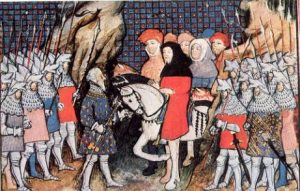
SCENE II. The coast of Wales. A castle in view.
KING RICHARD II
Barkloughly castle call they this at hand?
DUKE OF AUMERLE
Yea, my lord. How brooks your grace the air,
After your late tossing on the breaking seas?
KING RICHARD II
Needs must I like it well: I weep for joy
To stand upon my kingdom once again.
Dear earth, I do salute thee with my hand,
Though rebels wound thee with their horses’ hoofs:
As a long-parted mother with her child
Plays fondly with her tears and smiles in meeting,
So, weeping, smiling, greet I thee, my earth,
And do thee favours with my royal hands.
Feed not thy sovereign’s foe, my gentle earth,
Nor with thy sweets comfort his ravenous sense;
But let thy spiders, that suck up thy venom,
And heavy-gaited toads lie in their way,
Doing annoyance to the treacherous feet
Which with usurping steps do trample thee:
Yield stinging nettles to mine enemies;
And when they from thy bosom pluck a flower,
Guard it, I pray thee, with a lurking adder
Whose double tongue may with a mortal touch
Throw death upon thy sovereign’s enemies.
Mock not my senseless conjuration, lords:
This earth shall have a feeling and these stones
Prove armed soldiers, ere her native king
Shall falter under foul rebellion’s arms.
BISHOP OF CARLISLE
Fear not, my lord: that Power that made you king
Hath power to keep you king in spite of all.
The means that heaven yields must be embraced,
And not neglected; else, if heaven would,
And we will not, heaven’s offer we refuse,
The proffer’d means of succor and redress.
DUKE OF AUMERLE
He means, my lord, that we are too remiss;
Whilst Bolingbroke, through our security,
Grows strong and great in substance and in power.
KING RICHARD II
Discomfortable cousin! know’st thou not
That when the searching eye of heaven is hid,
Behind the globe, that lights the lower world,
Then thieves and robbers range abroad unseen
In murders and in outrage, boldly here;
But when from under this terrestrial ball
He fires the proud tops of the eastern pines
And darts his light through every guilty hole,
Then murders, treasons and detested sins,
The cloak of night being pluck’d from off their backs,
Stand bare and naked, trembling at themselves?
So when this thief, this traitor, Bolingbroke,
Who all this while hath revell’d in the night
Whilst we were wandering with the antipodes,
Shall see us rising in our throne, the east,
His treasons will sit blushing in his face,
Not able to endure the sight of day,
But self-affrighted tremble at his sin.
Not all the water in the rough rude sea
Can wash the balm off from an anointed king;
The breath of worldly men cannot depose
The deputy elected by the Lord:
For every man that Bolingbroke hath press’d
To lift shrewd steel against our golden crown,
God for his Richard hath in heavenly pay
A glorious angel: then, if angels fight,
Weak men must fall, for heaven still guards the right.
Enter EARL OF SALISBURY
Welcome, my lord how far off lies your power?
EARL OF SALISBURY
Nor near nor farther off, my gracious lord,
Than this weak arm: discomfort guides my tongue
And bids me speak of nothing but despair.
One day too late, I fear me, noble lord,
Hath clouded all thy happy days on earth:
O, call back yesterday, bid time return,
And thou shalt have twelve thousand fighting men!
To-day, to-day, unhappy day, too late,
O’erthrows thy joys, friends, fortune and thy state:
For all the Welshmen, hearing thou wert dead.
Are gone to Bolingbroke, dispersed and fled.
DUKE OF AUMERLE
Comfort, my liege; why looks your grace so pale?
KING RICHARD II
But now the blood of twenty thousand men
Did triumph in my face, and they are fled;
And, till so much blood thither come again,
Have I not reason to look pale and dead?
All souls that will be safe fly from my side,
For time hath set a blot upon my pride.
DUKE OF AUMERLE
Comfort, my liege; remember who you are.
KING RICHARD II
DUKE OF AUMERLE
I had forgot myself; am I not king?
Awake, thou coward majesty! thou sleepest.
Is not the king’s name twenty thousand names?
Arm, arm, my name! a puny subject strikes
At thy great glory. Look not to the ground,
Ye favourites of a king: are we not high?
High be our thoughts: I know my uncle York
Hath power enough to serve our turn. But who comes here?
Enter SIR STEPHEN SCROOP
SIR STEPHEN SCROOP
More health and happiness betide my liege
Than can my care-tuned tongue deliver him!
KING RICHARD II
Mine ear is open and my heart prepared;
The worst is worldly loss thou canst unfold.
Say, is my kingdom lost? why, ’twas my care
And what loss is it to be rid of care?
Strives Bolingbroke to be as great as we?
Greater he shall not be; if he serve God,
We’ll serve Him too and be his fellow so:
Revolt our subjects? that we cannot mend;
They break their faith to God as well as us:
Cry woe, destruction, ruin and decay:
The worst is death, and death will have his day.
SIR STEPHEN SCROOP
Glad am I that your highness is so arm’d
To bear the tidings of calamity.
Like an unseasonable stormy day,
Which makes the silver rivers drown their shores,
As if the world were all dissolved to tears,
So high above his limits swells the rage
Of Bolingbroke, covering your fearful land
With hard bright steel and hearts harder than steel.
White-beards have arm’d their thin and hairless scalps
Against thy majesty; boys, with women’s voices,
Strive to speak big and clap their female joints
In stiff unwieldy arms against thy crown:
The very beadsmen learn to bend their bows
Of double-fatal yew against thy state;
Yea, distaff-women manage rusty bills
Against thy seat: both young and old rebel,
And all goes worse than I have power to tell.
KING RICHARD II
Too well, too well thou tell’st a tale so ill.
Where is the Earl of Wiltshire? where is Bagot?
What is become of Bushy? where is Green?
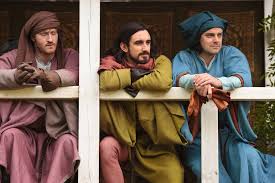
That they have let the dangerous enemy
Measure our confines with such peaceful steps?
If we prevail, their heads shall pay for it:
I warrant they have made peace with Bolingbroke.
SIR STEPHEN SCROOP
Peace have they made with him indeed, my lord.
KING RICHARD II
O villains, vipers, damn’d without redemption!
Dogs, easily won to fawn on any man!
Snakes, in my heart-blood warm’d, that sting my heart!
Three Judases, each one thrice worse than Judas!
Would they make peace? terrible hell make war
Upon their spotted souls for this offence!
SIR STEPHEN SCROOP
Sweet love, I see, changing his property,
Turns to the sourest and most deadly hate:
Again uncurse their souls; their peace is made
With heads, and not with hands; those whom you curse
Have felt the worst of death’s destroying wound
And lie full low, graved in the hollow ground.
DUKE OF AUMERLE
Is Bushy, Green, and the Earl of Wiltshire dead?
SIR STEPHEN SCROOP
Ay, all of them at Bristol lost their heads.
DUKE OF AUMERLE
Where is the duke my father with his power?
KING RICHARD II
No matter where; of comfort no man speak:
Let’s talk of graves, of worms, and epitaphs;
Make dust our paper and with rainy eyes
Write sorrow on the bosom of the earth.
Let’s choose executors and talk of wills:
And yet not so, for what can we bequeath
Save our deposed bodies to the ground?
Our lands, our lives and all are Bolingbroke’s,
And nothing can we call our own but death
And that small model of the barren earth
Which serves as paste and cover to our bones.
For God’s sake, let us sit upon the ground
And tell sad stories of the death of kings;
How some have been deposed; some slain in war,
Some haunted by the ghosts they have deposed;
Some poison’d by their wives: some sleeping kill’d;
All murder’d: for within the hollow crown
That rounds the mortal temples of a king
Keeps Death his court and there the antic sits,
Scoffing his state and grinning at his pomp,
Allowing him a breath, a little scene,
To monarchize, be fear’d and kill with looks,
Infusing him with self and vain conceit
As if this flesh which walls about our life
Were brass impregnable, and humor’d thus
Comes at the last and with a little pin
Bores through his castle wall, and farewell king!
Cover your heads and mock not flesh and blood
With solemn reverence: throw away respect,
Tradition, form and ceremonious duty,
For you have but mistook me all this while:
I live with bread like you, feel want,
Taste grief, need friends: subjected thus,
How can you say to me, I am a king?
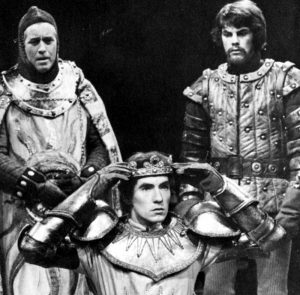

Lines in the Trouser 15
Two little boys[1]
Context: In the last twenty five years Australian Federal politics have seen several successful partnerships which have ultimately ‘ended in tears’. First there was Hawke-Keating, then Rudd-Gillard and more recently Abbott-Turnbull. It is sometimes forgotten that the situation involving Prime Minister John Howard and Treasurer Peter Costello might have gone the same way, but for one reason or another Costello’s challenge never eventuated. As with Bob Hawke, there was said to be some sort of commitment from Howard to hand over peacefully and seamlessly to his Treasurer at an agreed time (reportedly December 2006 – see the piece by Michelle Grattan at http://bit.ly/2sMUpUr). However the deal – if there was one – was never consummated and Peter Costello never challenged. Howard went on as PM to lose the Election of November 2007 and his own seat of Bennelong. Costello confounded expectations by not seeking Liberal Party leadership in Opposition, with that position going to Brendan Nelson and then Malcolm Turnbull. Costello resigned from Parliament in October 2009. Peter Costello’s brother Tim has been a leading advocate for social justice and Australia’s overseas aid program. The song “Two Little Boys” was written by American composer Theodore F Morse and lyricist Edward Madden in 1902 and was made popular by Harry Lauder. Ted Egan sang it to Rolf Harris in Arnhem Land in 1969 – and again over the phone! – and it was No. 1 on the singles chart for six weeks from December 1969. (As Administrator of the Northern Territory Ted Egan gave a Keynote Address at the 8th National Rural Health Conference, held in Alice Springs in 2005.) Apparently it was one of Margaret Thatcher’s favourite songs. Despite that, Hartlepool United fans have sung the song on the terraces since the 1980s. Unfortunately the song has recently done little for the team’s performances: at the end of the 2016-17 season they were relegated from League Division Two to the National League. I suppose I wrote this version some time during 2006.
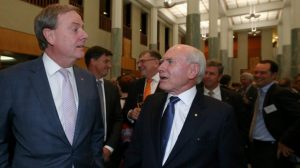
Two little boys
Two little boys made plenty of noise
Each took a different course
Normally they tried their differences to hide
Travellers both of course.
One little chap then had a mishap
Couldn’t break his leader’s head
Wept for the job but ceased to sob
When his older brother said:
“For the sake of the Lord stop crying
There’s no room in The Lodge for two
Piss off Pete and quit your whining
John-will-do what John will do.
When you stand down you’ll be forgotten
Just as sure as the night time falls
And then we will all remember
Which one of us had the balls.”
Some months passed, Rudd came at last
(A world vision in his sights).
Not very old and a sight to behold:
A backbencher’s name up in lights.
The same little chap, just one more mishap
A half-Nelson grip on his head
Wept for the job but ceased to sob
When his older brother said:
“For the sake of the Lord stop crying
The Party wants you now it’s true
Brendan’s scores are not impressive
And Malcolm says he’ll wait for you.”
“But can’t you see Tim I’m all a-tremble
It’s boards now for me (so it looks):
But thanks to the Party and the media
This should help sell all the books.”


Lines in the Trouser 16
“Some chicken! Some neck” – Winston Churchill
Context: The rhythm of the phrase is surely what makes it so strong and memorable. It’s all in the timing.
Some chicken! Some neck.
The contribution of Canada to the imperial war effort in troops, in ships, in aircraft, in food, and in finance has been magnificent ——- “Hitler and his Nazi gang have sown the wind: let them reap the whirlwind.”
“- – – -When I warned them (the French) that Britain would fight on alone whatever they did, their generals told the Prime Minister and his divided Cabinet, ‘in three weeks England will have her neck wrung like a chicken. Some chicken! Some neck.'”
(Speech to Canadian Parliament, 1942)

Lines in the trouser 17
We’ve had enough of fluoro vests
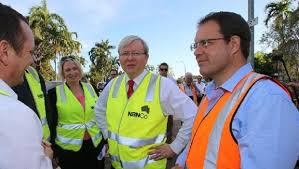
Context: The Federal Election held on 7 September 2013 was fought out between Kevin Rudd and Tony Abbott. It came after three tumultuous years in which there was a hung parliament, highly partisan parliamentary politics, and leadership struggles within the Labor Party. These last saw the demise of Australia’s first female Prime Minister, Julia Gillard. The public was already demonstrating a ‘pox on both your houses’ attitude to politics and to the leaders of the two major blocs. Towards the end of the campaign the 12th Australian Palliative Care Conference was held in Canberra. Yvonne Luxford was then CEO of Palliative Care Australia (PCA) and the following piece was initially titled ‘For Yvonne – 4 September 2013’. I don’t recall whether Yvonne or PCA was ever actually delivered of the piece or whether it remained in My Back Pocket. Several of the piece’s political sentiments remain appropriate today (June 2017), with the public’s alienation from the main political parties having grown apace.
We’ve had enough of fluoro vests
We’ve had enough of fluoro vests and cooking shows and malls
The prospect of the next ‘debate’ quite frankly just appals.
We want to feel some leadership, some vision – real ideas –
Then we’ll grant a ‘mandate’ to some grouping with few fears.
What care for disability? What funding for our schools?
What promises for dental health? for broadband what new rules?
What place for those without a home who venture to our land?
On taxing times for climate what is ultimately planned?
To Close the Gap’s a target for which we all must thirst
So life can be as long and fair for those who were here first.
To deal with death and dying with somewhat less regret
So care at end of life will be fond business for us yet!
The richest land in all the world, unhurt by GFC
Should share its bounty evenly; that is our earnest plea.
We crave someone of whom we’re proud (in this our nation lags)[2]
A leader fit between the ears – not just between the flags.
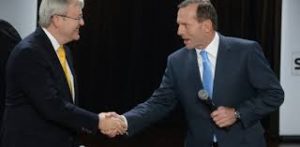

Lines in the Trouser 18
What’s in a name?
Context: When writing about Australia’s health sector one frequently has to choose between the terms ‘preventive health’ and ‘preventative health’ – although of course the choice is a straw man, a red herring or a bit of both! Because of course the labelling of policies and programs which prevent illness as being in the field of ‘preventive health’ is extremely daft. It seems that I wrote this piece some time between November 2009 and August 2010. Much of Alan Bennett’s writing and performance falls within my ‘favourites’ category so it is appropriate to have something in this piece of doggerel for which to acknowledge him explicitly. Note: I have amended this piece since its original creation, mainly for happier scansion.

What’s in a name?
When it comes to paper toileting there seem to be two bunches:
One group likes to fold, it’s said, the other merely scrunches.
(I know just what you’re thinking – some of you, if not all:
When we turn to the toilet for humour then the writing for sure’s on the wall.)[3]
So which group are you in? What do you aver?
Is it ‘preventative’ health or ‘preventive’? Which do you prefer?
Or perhaps you’re so smart, see words as an art
And say ‘prophylactic health’ – how inventive!
The difference of course is an extra ‘a-t’;
Just one syllable, two letters more.
So how do you usually say the word? Is the ‘tive’ third or fourth?
Does it only have three feet, or four?
No matter: the word is misleading
It really is very deranged.
The prevention of health is not what we’re after,
That really would be very strange.
So let’s all agree then, instead of the choice
Between preventative health and the shorter
We’ll coin the new term ‘preventing poor health’
And hope experts agree – ‘cos aorta.
[1] With apologies to Theodore Morse and Edward Madden – and the supporters of Hartlepool United.
[2] given political events overseas in 2016-17 perhaps this is no longer a fair reflection of Australia’s position
[3] this wordplay is stolen from Alan Bennett.

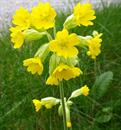




 The Bill to enact the appointment of the Commissioner passed the Senate unopposed on16 June. Attention will now turn to the Commissioner’s appointment and to their priority activity.
The Bill to enact the appointment of the Commissioner passed the Senate unopposed on16 June. Attention will now turn to the Commissioner’s appointment and to their priority activity.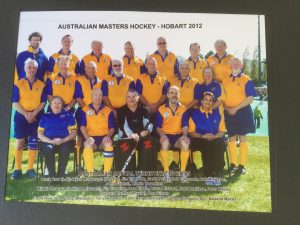 Tony is seated, second from Left
Tony is seated, second from Left
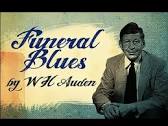
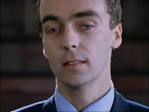 – and in the musical February House, produced Off-Broadway in 2012, a large portion of the poem is sung by Auden himself. I find it very moving.
– and in the musical February House, produced Off-Broadway in 2012, a large portion of the poem is sung by Auden himself. I find it very moving. Heart of our Universe
Heart of our Universe